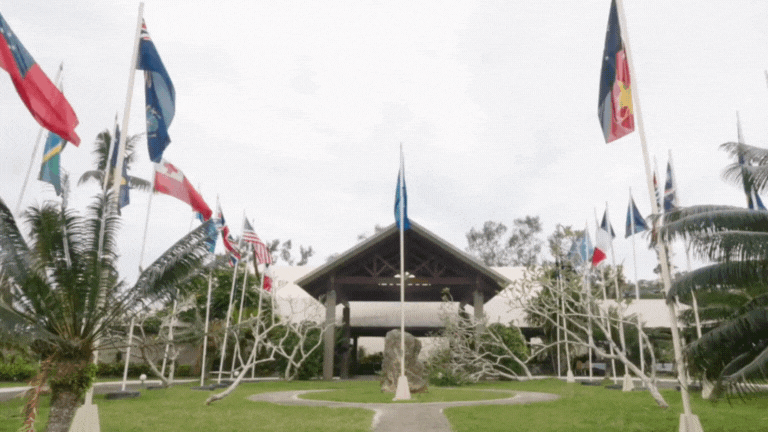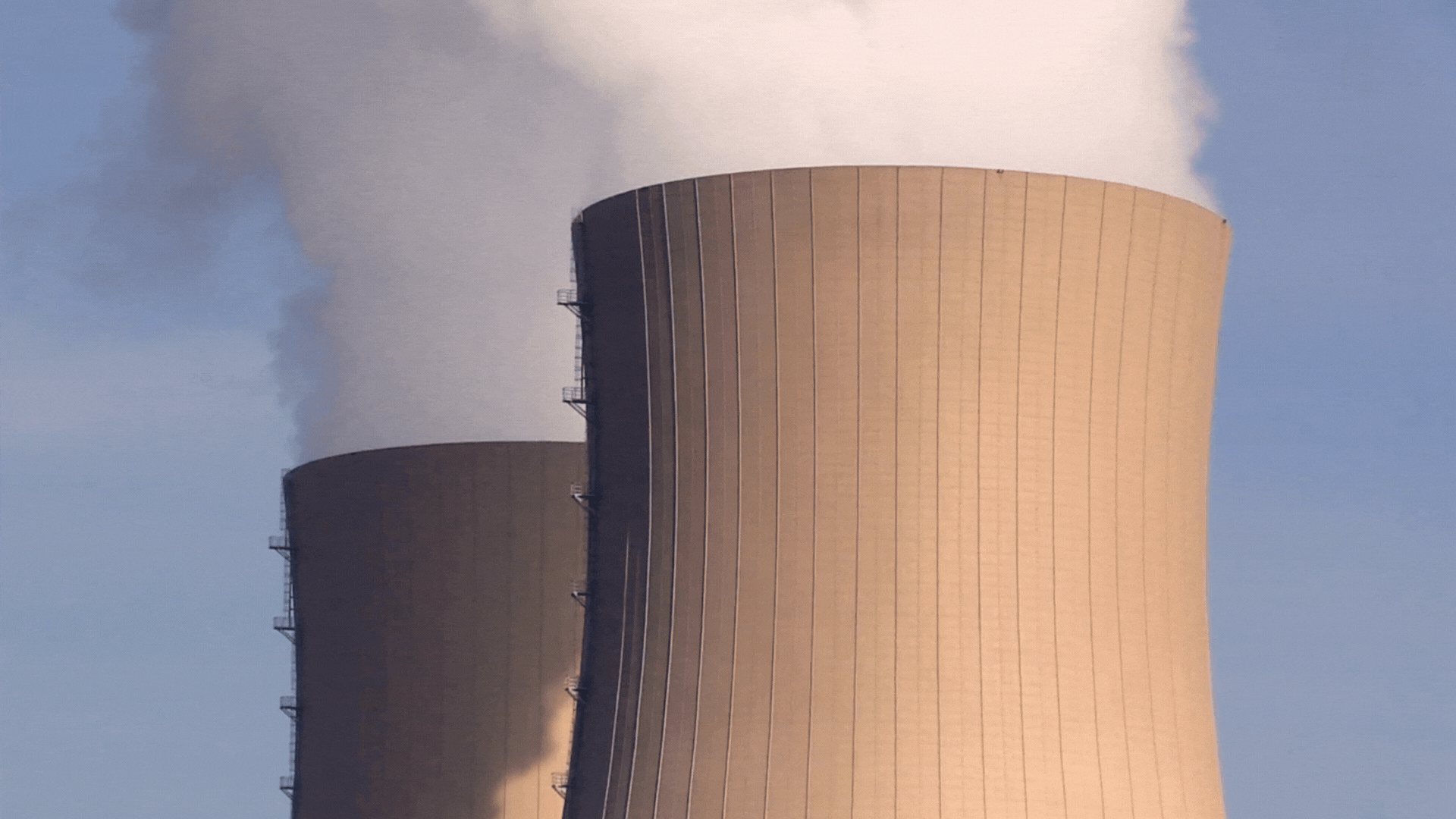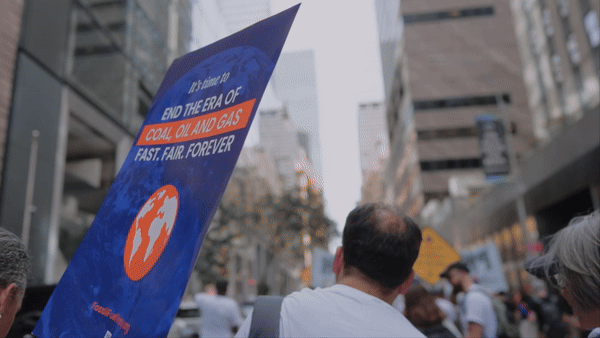OUR MISSION
AND HISTORY
The call for a phase-out of fossil fuels has a powerful, global history.
This is how we got here.
Learn more about the Fossil Fuel Treaty’s Theory of Change.
In order to meet the goals of the Paris Agreement, we need international cooperation to explicitly stop the expansion of fossil fuels and manage a global just transition away from coal, oil and gas in a manner that is both fast and fair, so that no worker, community or country is left behind.
This is why significant momentum is building behind the proposal for a Fossil Fuel Treaty.
The Fossil Treaty is not an organisation, it’s an idea — one backed by a growing global network of governments, civil society organisations, academics, scientists, youth activists, health professionals, faith institutions, Indigenous peoples and hundreds of thousands of other citizens globally.
Together they have joined a global initiative building momentum and diplomatic support behind this big, bold idea commensurate with the scale of the crisis we face
Fossil Fuel Treaty Champion and climate activist, Brianna Fruean, at New York Climate Week 2023
The Fossil Fuel Initiative is a global effort to foster international cooperation to accelerate a transition to renewable energy for everyone, end the expansion of coal, oil and gas, and equitably phase out existing production in keeping with what science shows is needed to address the climate crisis. It builds on decades of calls and campaigns for a fossil fuel phase out and fair energy transition by government, civil society, Indigenous, grassroots and other leaders - particularly from the Global South and aims to compliment other movements tactics such as divestment, debt relief and fossil fuel bans as well as the work being advanced by the Beyond Oil and Gas Alliance and the Power Past Coal Alliance.
While the Paris Agreement set a crucial global climate target, many governments - including self-proclaimed climate leaders - have continued to approve new coal, oil and gas projects even though burning the world’s current fossil fuel reserves would result in seven times more emissions than what is compatible with keeping warming below 1.5ºC.
President of Vanuatu, Nikenike Vurobaravu, announces the call for a Fossil Fuel Treaty at the United Nations in 2022, becoming the first country to endorse
Timeline of the Fossil Fuel TreatyOil, gas and coal are the root cause of the climate crisis and despite the destructive reality of fossil fuels, as well as the constant warnings of the scientific community, there is no binding mechanism to limit their production.
The Paris Agreement, important as it is, does not reference fossil fuels once and has failed to constrain production. The commitments made by states to reduce fossil fuel consumption are indispensable, but to think that they will lead to a decrease in production is false.
Therefore, a complementary agreement is needed. Just like fifty years ago, when the world used international treaties to defuse the threats posed by nuclear weapons, today, the world needs a Fossil Fuel Treaty to phase out fossil fuels, support dependent economies, workers and communities to diversify away from fossil fuels, ensure 100% access to renewable energy globally and promote a just transition that leaves no-one behind.
2015 – PACIFIC LEADERS CALL FOR A GLOBAL FOSSIL FUEL TREATY

Frontline communities particularly those from the Global South are paying the highest price of fossil fuel exploitation and climate change, yet are the least responsible. All over the world and for decades, frontline struggles have shown leadership in resisting the plundering of their territories. Today, for many communities around the world - and for some whole countries - continued fossil fuel extraction and climate change represent an existential crisis.
In response to this crisis, an early proposal came from officials and civil society leaders in the Pacific for a moratorium and binding international mechanisms specifically edicated to phasing out fossil fuels in the Pacific. In 2015, in the Suva Declaration On Climate Change issued from the Pacific Islands Development Forum Third Annual Summit held in Suva, Fiji, decision-makers called for: "a new global dialogue on the implementation of an international moratorium on the development and expansion of fossil fuel extracting industries, particularly the construction of new coal mines, as an urgent step towards decarbonising the global economy.”
In 2016, following a summit in the Solomon Islands, 14 Pacific Island nations discussed the world's first treaty that would ban new coal mining and embrace the 1.5C goal set at the Paris climate talks.
2017 – LEAST DEVELOPED COUNTRIES CALL FOR PHASE OUT OF FOSSIL FUELS

Another important step was the call made by the least developed countries for a fossil fuel phase-out.
In 2017, the Least Developed Countries (LDC) group made a joint closing statement at COP23, chaired by Fiji and held in Bonn, in which they stressed the need for: "an increase in ambition by all countries to put us on track to limit the global temperature increase to 1.5 degrees Celsius by strengthening our national contributions, managing a phase-out of fossil fuels, promoting renewable energy and implementing the most ambitious climate action."
2017 – CIVIL SOCIETY CALLS FOR END TO FOSSIL FUEL DEVELOPMENT

At the international level, civil society actors also mobilized actively for a global phase-out. This led to the Lofoten Declaration, written in 2017 at a gathering in the Lofoten Islands, Norway, with academics, analysts, and activists.
The declaration recognized the emergency to stop the expansion of the oil and gas industry in order to achieve the Paris climate goals. It also called for action to be taken first by countries having benefited the most from fossil fuel extraction, having thus a historical responsibility for the climate crisis, but being also the best positioned in terms of capacity to take concrete climate action for a global just transition away from fossil fuel production. The declaration stated: "It is the urgent responsibility and moral obligation of wealthy fossil fuel producers to lead in putting an end to fossil fuel development and to manage the decline of existing production.”
FOSSIL FUELS ARE WEAPONS OF MASS DESTRUCTION

During the discussions around the Lofoten Declaration, analogies to the weapons treaties were already included since landmines and nuclear ban treaties are important inspirations.
Not only because of the obtained results but also because of the way the peace and disarmament movements campaigned, especially the International Campaign to Abolish Nuclear Weapons (ICAN). It brought together civil society and grassroots efforts from around the world to prohibit and eliminate nuclear weapons proliferation.
The analogy to treat fossil fuels as nuclear weapons was reinforced by prominent scholars, most notably Peter Newell and Andrew Simms, in an article published in 2019 in Climate Policy.
2019-2024 – MOMENTUM BUILDS FOR A FOSSIL FUEL TREATY

Based on the best practices of former treaty campaigns and existing struggles led by frontline communities, the Fossil Fuel Non-Proliferation Treaty Initiative started in 2019 through a Climate Breakthrough award.
Today, it is carried by a diverse Steering Committee , an international support team, and backed by civil society organisations, scientists, academics, parliamentarians, youth activists, senior faith leaders, Indigenous movements, health institutions and Nobel Laureates globally.
The proposal has now been called for by the World Health Organisation, the European Parliament, as well as Vanuatu on the floor of the United Nations General Assembly.
Click here for an up to date list of who has called for a Fossil Fuel Non-Proliferation Treaty.
A rising chorus of voices is calling for a Fossil Fuel Non-Proliferation Treaty, in order to phase-out fossil fuels and build a globally just transition for every worker, community and country.
2024 – FIRST MINISTERIAL OF ENDORSING NATIONS

First Ministerial meeting of the 13 nations discuss pathways to secure a negotiating mandate for a Fossil Fuel Treaty, and how to bring more countries on board
In the lead-up to SIDS4, the Fossil Fuel Non-Proliferation Treaty Initiative convened on Sunday 26 May 2024 in Antigua and Barbuda the first meeting of the endorsing nations leading an effort to secure a negotiating mandate for a Treaty. The meeting was hosted by the SIDS 4 host nation, Antigua and Barbuda, the first Caribbean country to endorse the Treaty, in collaboration with the Governments of Tuvalu and Vanuatu.
The growing coalition of now 13 countries - Vanuatu, Tuvalu, Tonga, Fiji, the Solomon Islands, Niue, Antigua and Barbuda, Timor-Leste, Palau, Colombia, Samoa, Nauru, and the Marshall Islands - is urging other governments to join them in seeking a mandate to negotiate a new Treaty on fossil fuels. The proposed Treaty is a new legal mechanism that will secure an equitable transition away from oil, gas, and coal, and the world’s chance to stay within the 1.5°C climate limit.
With the accession of Marshall Islands, the Fossil Fuel Treaty proposal has 12 out of the 39 SIDS nations on board. Notably, the Republic of Colombia, a major developing nation and coal and gas producer, also joined the movement at COP28. This growing international support, which now includes 13 countries, over 100 cities, more than 2,000 civil society organizations, and half a million individuals, underscores the global need to phase out fossil fuels and embrace clean energy solutions, particularly for vulnerable nations like SIDS and the RMI.
What the Fossil Fuel Treaty Looks Like Today
Theory of ChangeThe Treaty is a bold initiative to build the collective power commensurate to counter the force of the fossil fuel industry that threatens our ability to stay within the safe emissions budget.
It recognizes that efforts on the demand side, or moving supply in individual countries, although essential, will be neither fast enough, nor sufficient, to disrupt the system towards a just transition. Global and whole system approaches are urgently required. It aims to create impact in three key areas; stopping expansion, winding down production, and making sure these changes are based on equitable frameworks for production decline and transition.
However, getting from A to B is much easier said than done.
At its core, the Treaty prioritises work that objectively progresses the development of multilateral governance mechanisms - a lever that experts refer to as an essential condition to compel governments to act and to make impact in these three areas. The Treaty recognises that complex dynamics of the global economic system require international cooperation and it pursues a pathway to sensitize, pressure and enable governance and policy making actors to act on fossil fuel supply transition.
Its theory of change stands out in how it recognises that to compel governments to act at the scale and pace that our crisis demands, different levers need to work simultaneously, and with strong coherence. The progress on this pathway is not linear. We need to be savvy of key interdependencies and pull other levers in related parts of the system:
Civil society must be sensitized to the scale of our crisis to start a shift in social norms that recognises the real cost of continued fossil fuel use. This shift will lead to social licenses being revoked, and in turn empower governments to act accordingly when facing the industry challenges. Without this shift in social norms, there is no real imperative for governments to take action.
On knowledge and innovation, scientific evidence and historical facts need to be lifted to establish new benchmarks of accountability. To shift the paradigm on what is needed and possible when we elevate equity-centred frameworks for production decline with insights and solutions to guide the policy and governance pathway.
These levers are hard to move but movement is urgent. Work is needed on many fronts, by different organisations and individuals, leading across all sectors of our society. Counter efforts from the incumbents are increasing as the pressure and threat to the status quo becomes more real, and imminent.
Here again, Coordinating a Directed Network Global Campaign, is an immediate lever for the Treaty to deliver its unique value. By being savvy of these many system dynamics, the Campaign builds power for the movement leveraging the Treaty and its distinctive compelling framework. The simple yet confident narrative of the Treaty, has international appeal and with its direct, consistent and continuous approach, it allows movement building simultaneously, across these parallel interconnected pathways.
The logic behind the theory of change and overall Treaty strategy, requires those levers to work to reinforce each other and produce positive outcomes - from intermediate ones along parallel, interconnected pathways (which is why ‘the journey matters') to the ultimate ones. One cannot orchestrate system change from all angles, but the levers being pulled by the Treaty, catalyse mobilization across countries, sectors and peoples, paving the way for creative solutioning and collective action.

